Welcome to Deconwolf
(Probably) the fastest deconvolution tool on the web
Deconwolf (DW) is a free, open-source, user-friendly software for seamless deconvolution of 3-D widefield fluorescence microscopy images of any type and size. It can be run on standard laptop computers as well as headless servers, requires minimal parameter setting, and can be used by anyone understanding how fluorescence microscopy works and with basic skills in image processing.
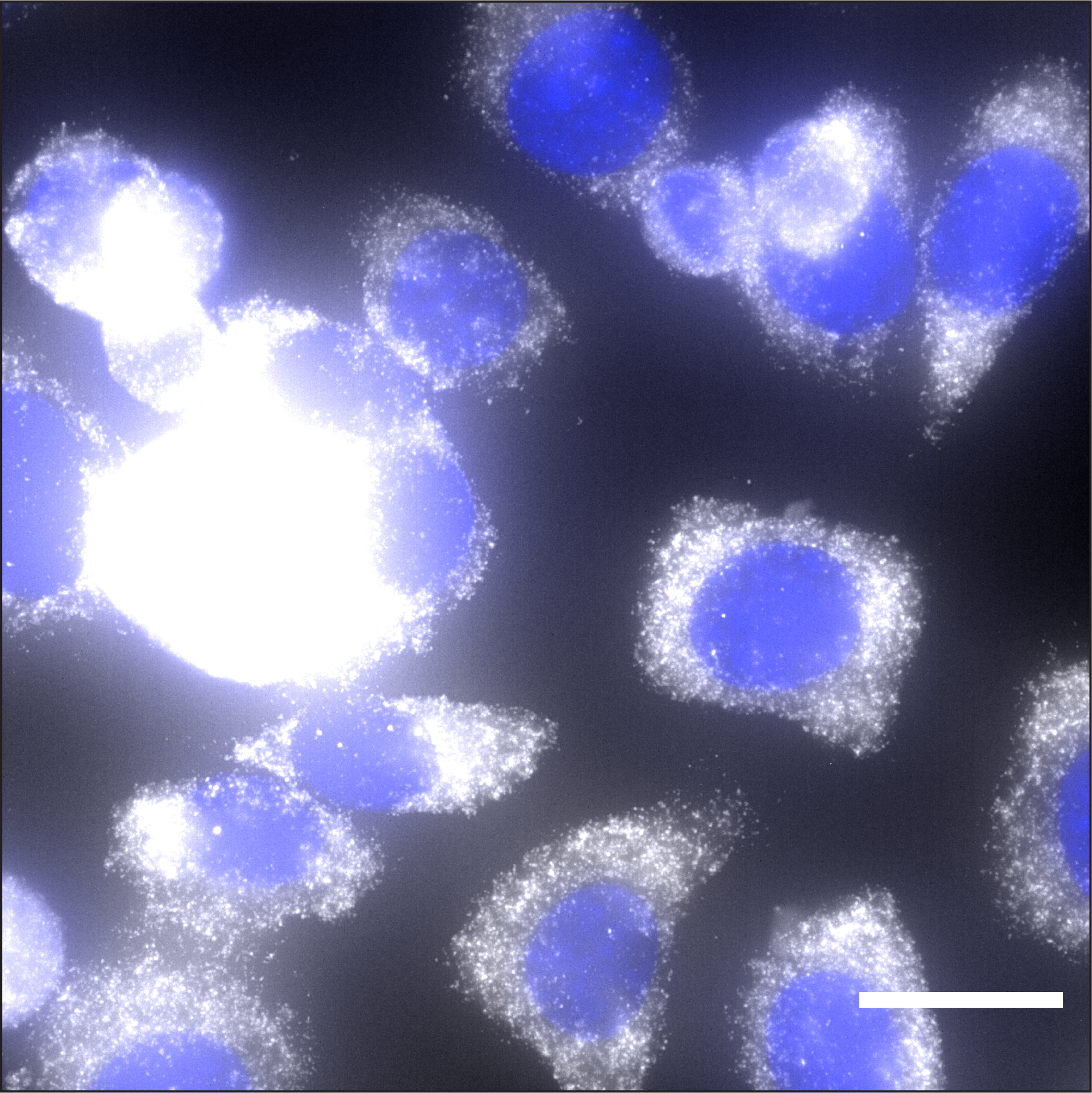
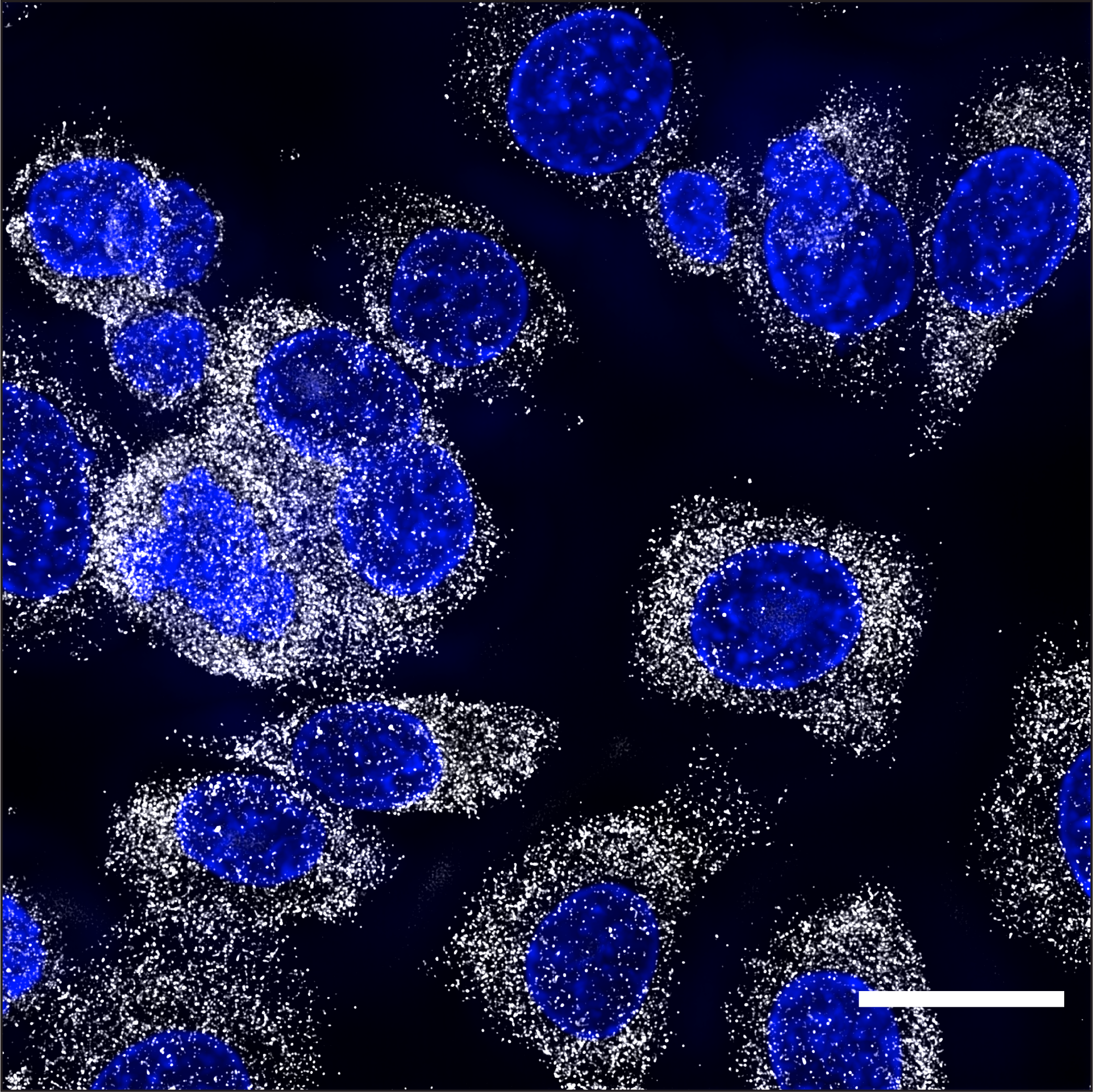
Move to slider to see before/after Deconwolf
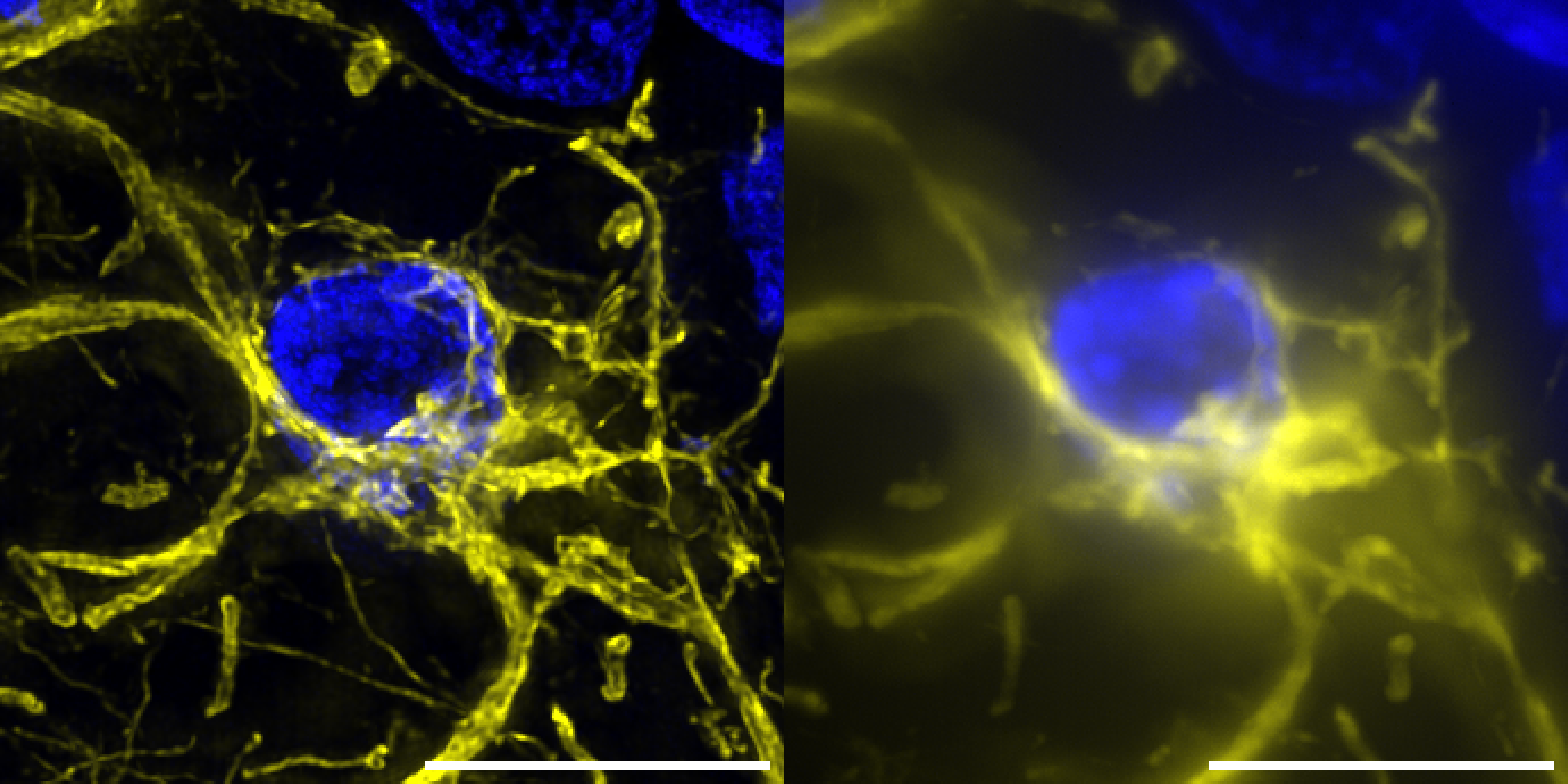
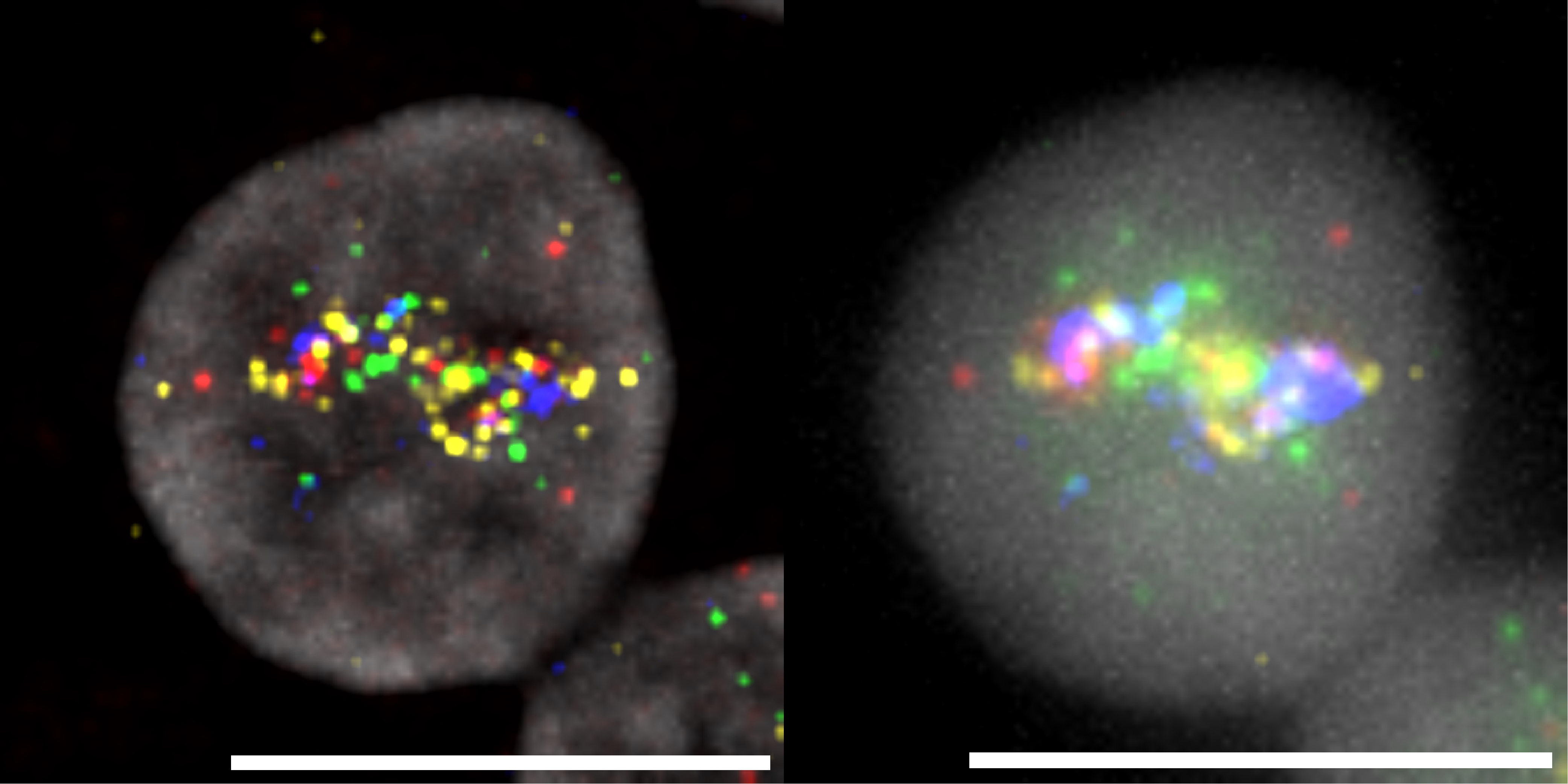
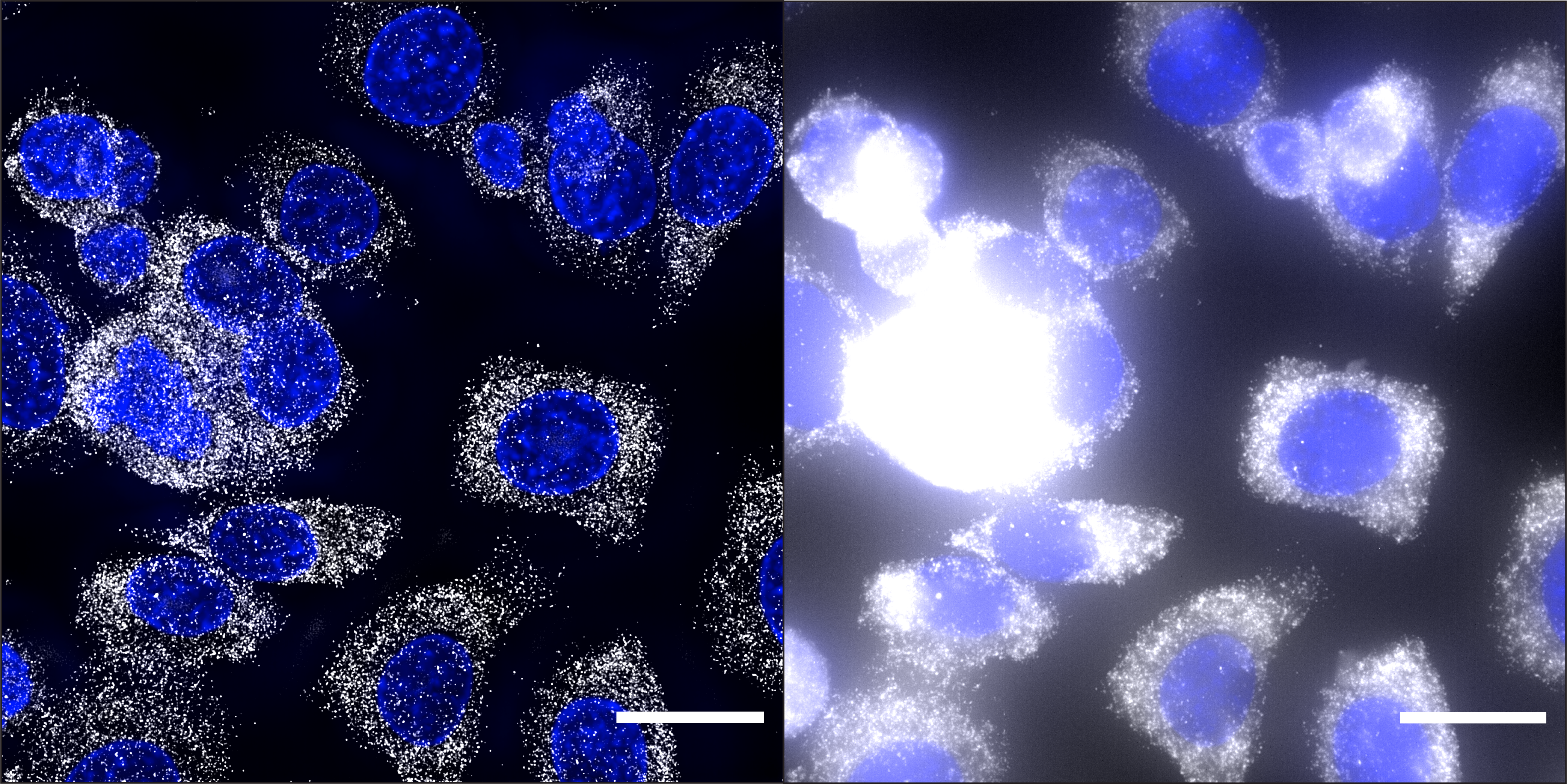
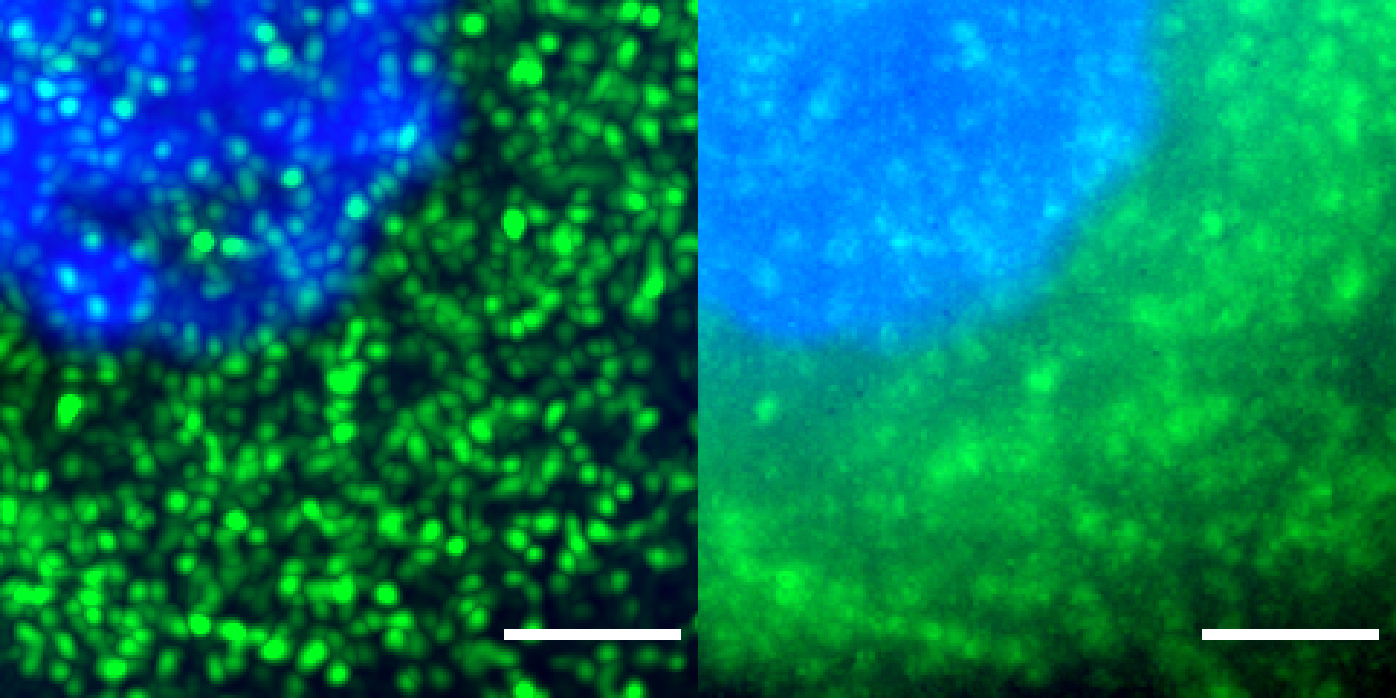
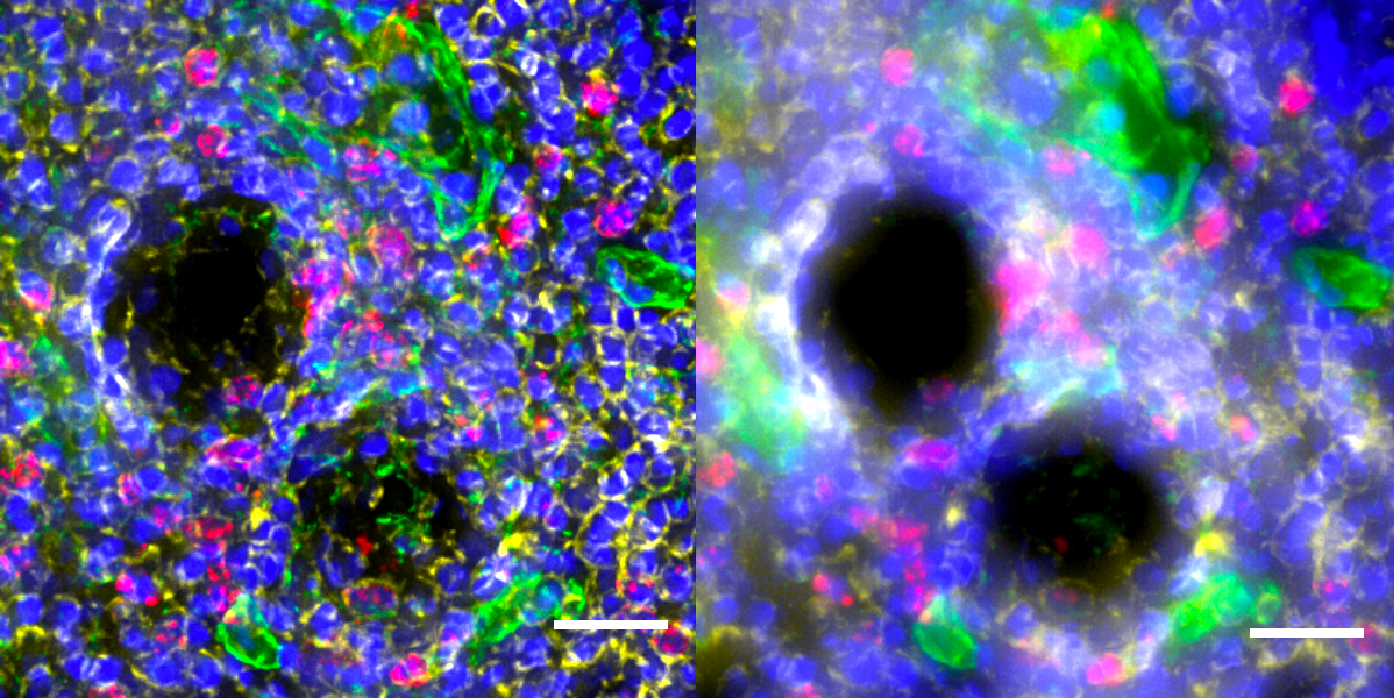
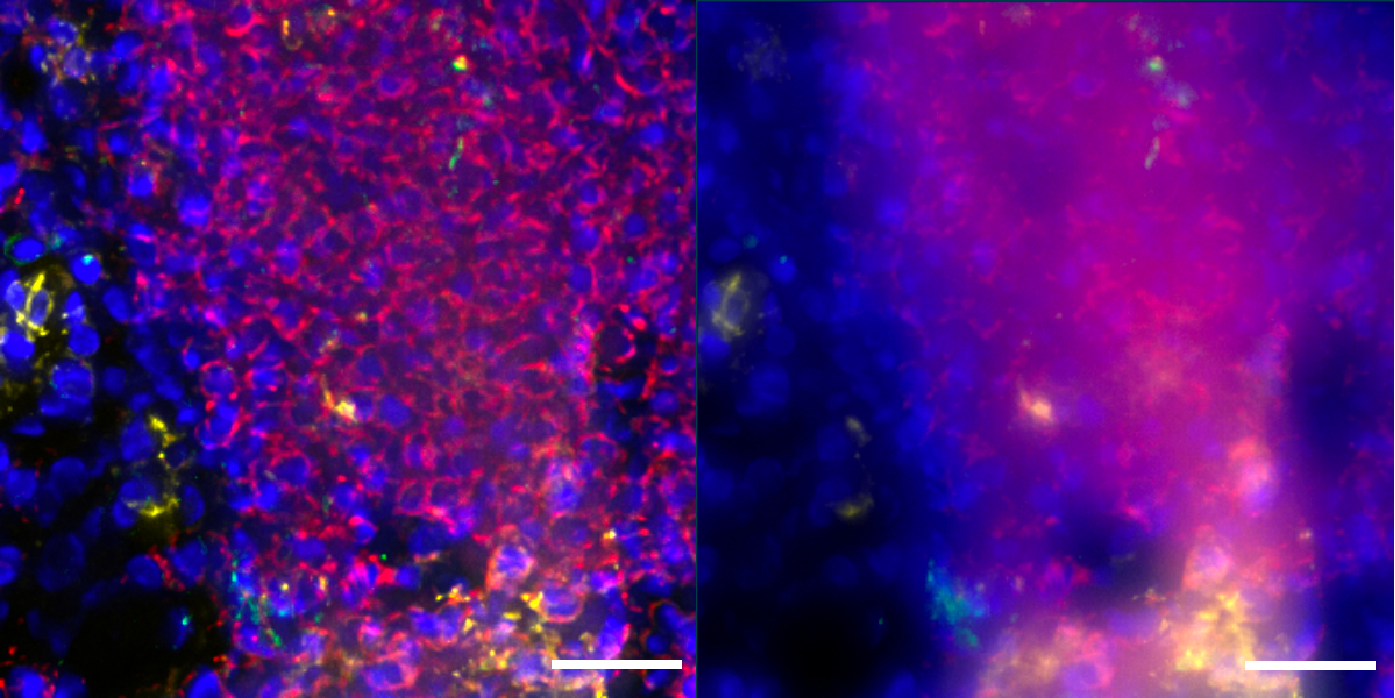
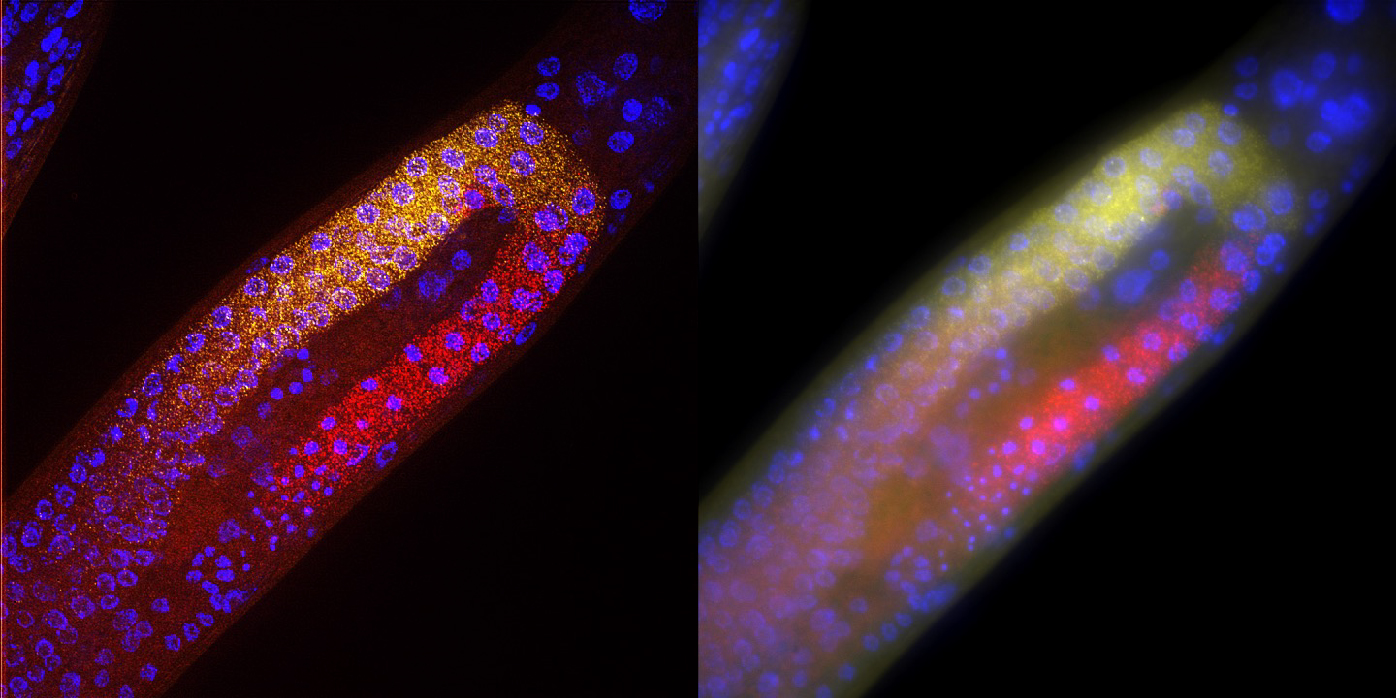
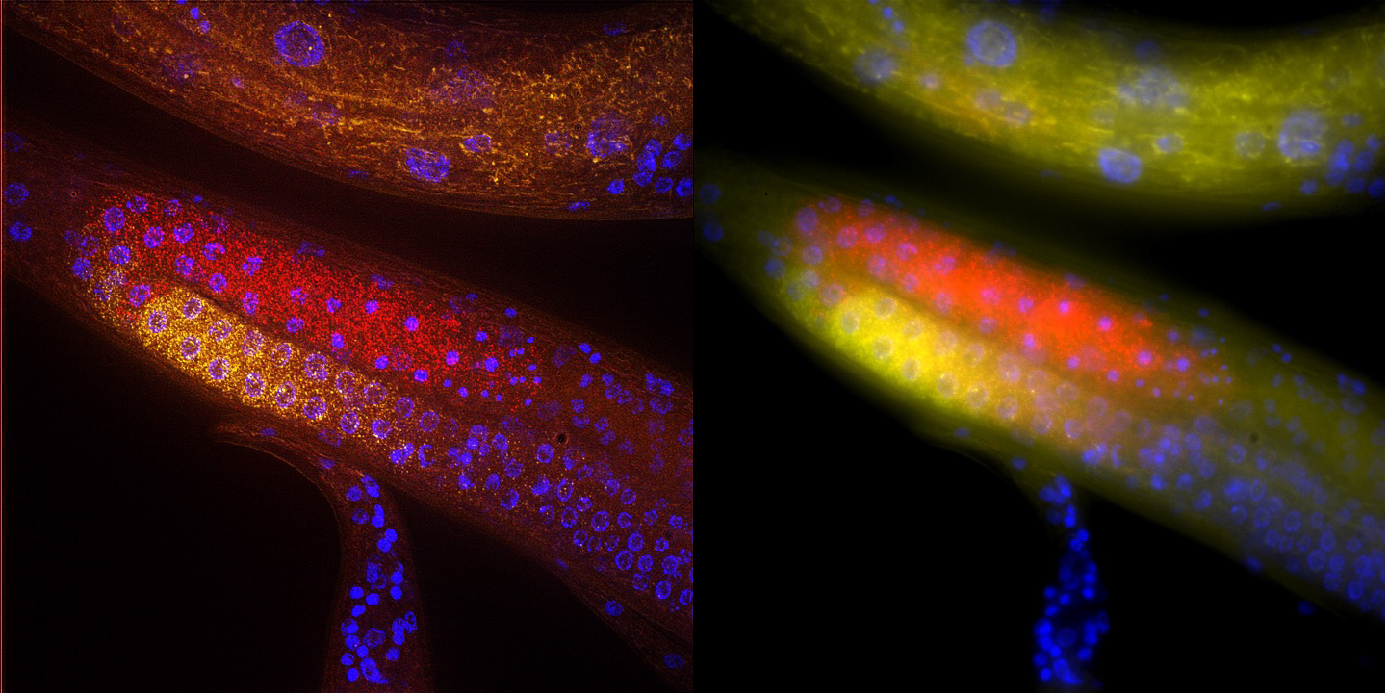
Introduction
Deconwolf (DW) is a software for deconvolution of 3-D widefield fluorescence microscopy images that is ideally suited to process large image datasets generated by DNA/RNA fluorescence in situ hybridization (FISH) techniques and microscopy-based spatial omics technologies, such as in situ spatial transcriptomics (ISST) and OligoFISSEQ.
However, DW can be easily applied to any type of widefield fluorescence microscopy images, such as those generated by immunofluorescence assays. DW can also be applied to improve the sharpness and contrast of confocal microscopy and super-resolution microscopy images.
DW outperforms other deconvolution tools in terms of speed, quality of deconvolution, and ease-of-use, as shown here.
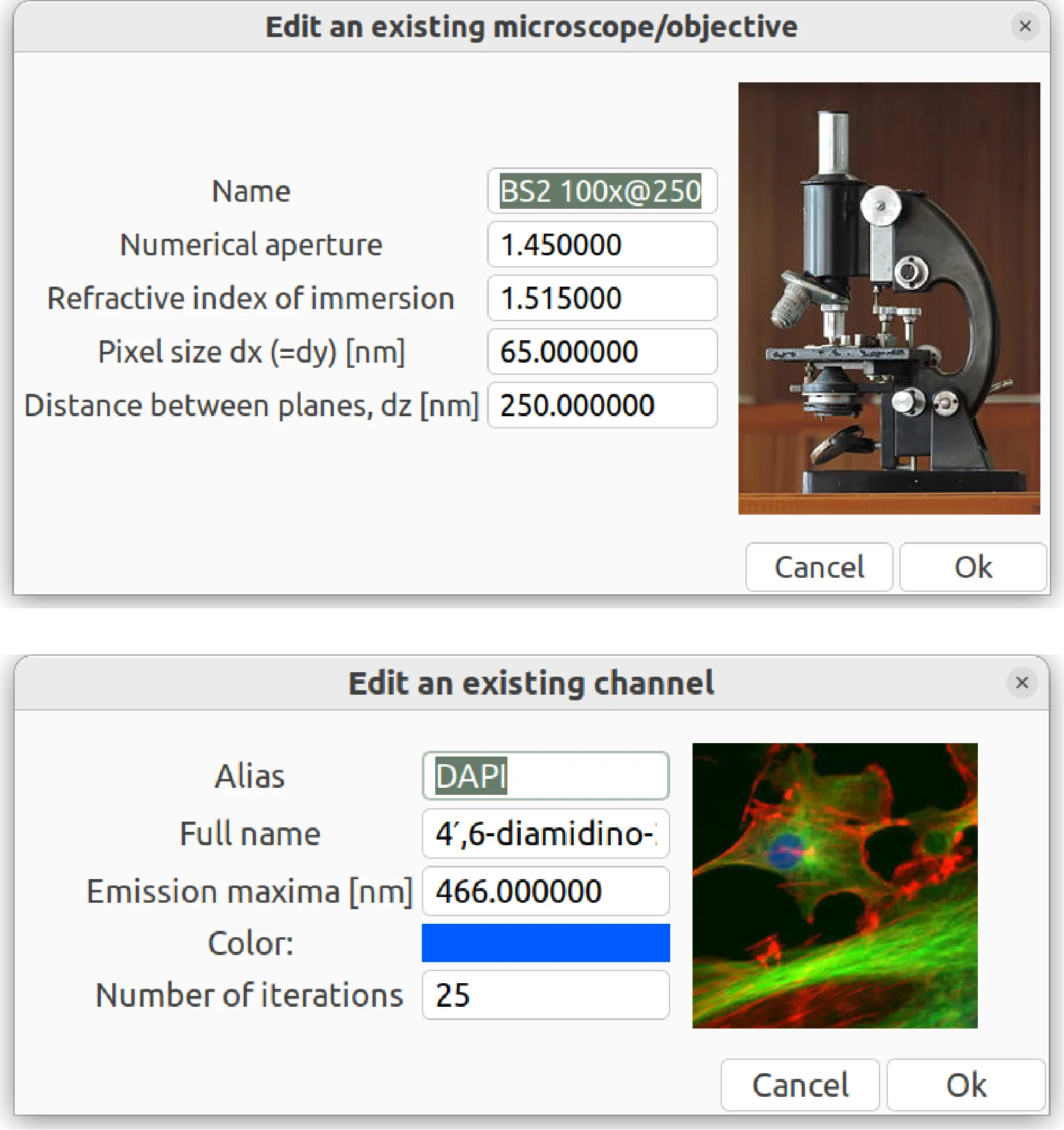
How It Works
Deconwolf (DW) builds on the Richardson-Lucy (RL) method and has four major ingredients:
- Virtually free of boundary artifacts due to M. Bertero and P. Boccacci’'s method which is extended to 3D.
- Acceleration reduces the number of required iterations. For this purpose, the Scaled Heavy Ball (SHB) algorithm, with proven convergence, is implemented.
- Highly parallelized code using OpenMP together with the best FFT libraries. For CPU calculations: FFTW3, and on GPU, the vendor neutral VkFFT
- A high-precision point spread function (PSF) calculator for the Born and Wolf model, which outperforms the PSF Generator which fully integrates over the pixels, rather than sample them in one point.
DW can run on CPUs as well as GPUs (via OpenCL), and is compatible with Linux, Mac, and Windows.
More details on how DW works and how to use it can be found here as well as this publication